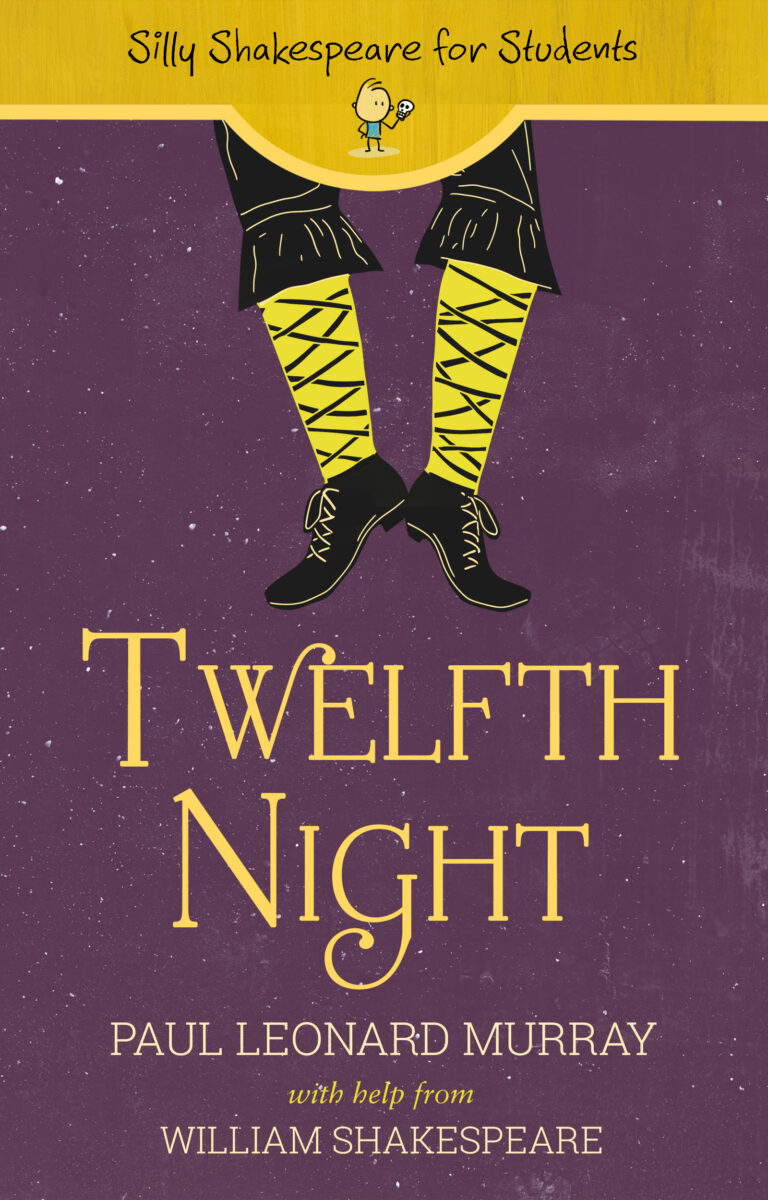Visit BELT – Belgrade English Language Theatre, a drama school bringing stories to life!
TWELFTH NIGHT
A Taste of What's to Come
TWELFTH NIGHT
Act One
Scene One
DUKE ORSINO
[Aside] I love the fair Olivia
And all my love I give to her.
But she will not reciprocate.
That’s why I’m waiting at her gate.
I asked my loyal Valentine
To explain to her just what I mean.
Without her love, I’ll surely die.
I’m hoping for a swift reply!
[Enter VALENTINE from the house]
VALENTINE
My noble lord, Duke Orsino.
The lady wanted you to know
That, having lost her little brother
She definitely can’t take a lover.
Her voice it shivers, her eyes have tears
She said: ‘Come back in seven years!’
A Taste of What's to Come
TWELFTH NIGHT
Act One
Scene One
DUKE ORSINO
[Aside] I love the fair Olivia
And all my love I give to her.
But she will not reciprocate.
That’s why I’m waiting at her gate.
I asked my loyal Valentine
To explain to her just what I mean.
Without her love, I’ll surely die.
I’m hoping for a swift reply!
[Enter VALENTINE from the house]
VALENTINE
My noble lord, Duke Orsino.
The lady wanted you to know
That, having lost her little brother
She definitely can’t take a lover.
Her voice it shivers, her eyes have tears
She said: ‘Come back in seven years!’
What happens when love, disguise, and mischief collide? In Twelfth Night, Shakespeare’s most delightful comedy, the answers are as unexpected as they are hilarious. This Silly Shakespeare for Students edition takes all the charm of the original and transforms it into a vibrant, fast-paced adaptation packed with rhyming couplets, humor, and heart.
Viola’s shipwrecked arrival in Illyria sets the stage for a whirlwind of mistaken identities and tangled affections. Disguised as a man, she wins the trust of Duke Orsino while secretly falling for him—only to find herself pursued by the lovestruck Lady Olivia. Meanwhile, a mischievous subplot unfolds as Olivia’s household conspires to humiliate the self-important steward, Malvolio.
With a clear focus on the essential moments and a playful tone, this version captures the comedy and emotional depth of Shakespeare’s classic. Featuring production tips, character insights, and a summary of the play, it’s an ideal choice for students, teachers, and anyone ready to dive into the laughter and chaos of Twelfth Night.
Twelfth Night’ is one of my personal favourites of Shakespeare’s classics. I had the privilege of playing Olivia in a film adaptation and sitting with the play for those months, I really came to appreciate all its delicious layers and intricacies as well as its very clever twists & turns! Paul’s highly engaging and imaginative retelling of the play does full justice to all of that – with the perfect blend of humour and heart, he cracks open what really lies beneath the language – a deeply human story of love, loss and longing. He makes that fully accessible not only for children, but adults too. Highly recommend a read!
Shalini Peiris
Actress -The White Lotus, Twelfth Night, The Ark
Twelfth Night’ is one of my personal favorites of Shakespeare’s classics. I had the privilege of playing Olivia in a film adaptation and sitting with the play for those months, I really came to appreciate all its delicious layers and intricacies as well as its very clever twists & turns! Paul’s highly engaging and imaginative retelling of the play does full justice to all of that – with the perfect blend of humour and heart, he cracks open what really lies beneath the language – a deeply human story of love, loss and longing. Highly recommend a read!
Shalini Peiris
Actress -The White Lotus, Twelfth Night,The Ark
Paul Murray’s adaptation of Twelfth Night is a student-friendly script that will quickly engage a cast whatever their level of experience. This vibrant and energetic version of the original will really help cast members to acquire context of the overall story and gain a good understanding of the central characters.
For those students new to Shakespeare, this version will quickly help students to connect to the playwright. By focusing on the essential actions and key moments of the plot, Paul Murray helps the cast to see how Shakespeare the actor valued the importance of keeping an audience entertained. Murray still makes space for social and cultural references, but the action canters along at pace. As an introduction to Shakespeare you will not have time to worry about being in a Renaissance Comedy, you simply need to enjoy being in a really funny production.
Gavin McDougall
Paul Murray’s adaptation of Twelfth Night is a student-friendly script that will quickly engage a cast whatever their level of experience.
For those students new to Shakespeare, this version will quickly help students to connect to the playwright. By focusing on the essential actions and key moments of the plot, Paul Murray helps the cast to see how Shakespeare the actor valued the importance of keeping an audience entertained.
Gavin McDougall
Trivia
One of Shakespeare’s Last True Comedies: Twelfth Night is considered one of Shakespeare’s final “happy ending” comedies before he shifted toward darker works like Measure for Measure and the romances.
The Name “Twelfth Night” is Missing in the Play: Unlike some of Shakespeare’s other works, the title Twelfth Night isn’t mentioned anywhere in the play itself. Its alternative subtitle, What You Will, might suggest Shakespeare’s playful approach to the story.
First Performance at a Feast: The play is believed to have been performed for the first time in 1602 at the Middle Temple Hall in London as part of the Twelfth Night celebrations.
Trivia
One of Shakespeare’s Last True Comedies: Twelfth Night is considered one of Shakespeare’s final “happy ending” comedies before he shifted toward darker works like Measure for Measure and the romances.
The Name “Twelfth Night” is Missing in the Play: Unlike some of Shakespeare’s other works, the title Twelfth Night isn’t mentioned anywhere in the play itself. Its alternative subtitle, What You Will, might suggest Shakespeare’s playful approach to the story.
First Performance at a Feast: The play is believed to have been performed for the first time in 1602 at the Middle Temple Hall in London as part of the Twelfth Night celebrations.

